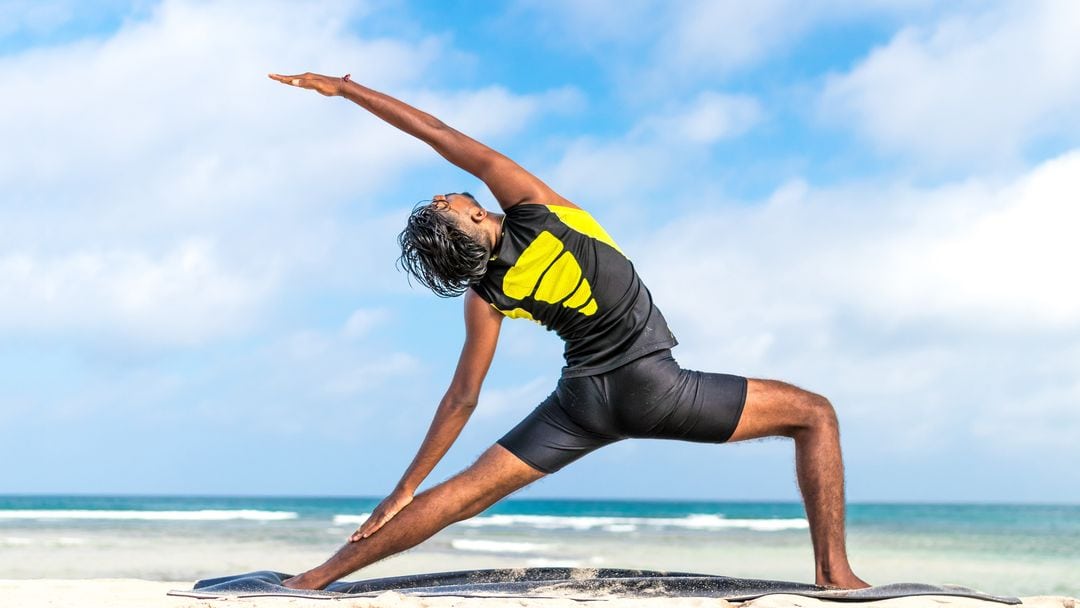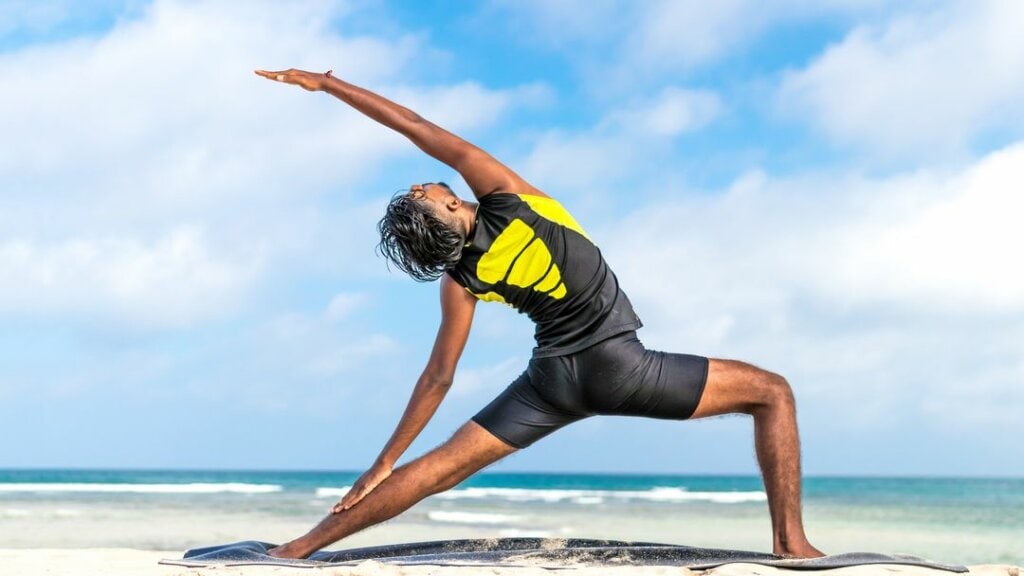When it comes to building consistency in any task, a sense of commitment and discipline are required. But as far as words are concerned, “commitment” and “discipline” carry a degree of seriousness to them — they certainly are not immediately thought of as words that are “fun.”
As most of us can appreciate, there is a level of difficulty in being consistent with any physical or mental discipline, even when we know that it is good for us. We are daunted by how it could interfere with our current schedule, or more specifically, add more to the schedule that is already quite full.
It is no secret that the benefits of a yoga practice are plenty: balanced sense of well-being, increasing physical strength and flexibility, greater mental clarity, and so on. These benefits are amplified when the practice is made consistent.
In aspiring to be consistent with our yoga practice, we need to consciously make space, be open to potentially breaking old habits, and rejoice in the possibility of creating new ones. And although we do need the drive to stay committed and disciplined, being consistent enables us to approach our mat with confidence and playfulness. Here’s why:
Consistency with Focus Builds Skill
Think about riding a bike for the first time, or learning how to swim. These are skills that require focus, and for most people, didn’t come after one go. Learning yoga, or in the case of building a consistent yoga practice, is a similar process.
We already know that consistency will take focus, and even dedication, but as you step on your mat again and again, you begin to notice that your breathing is easier, and that your downward dog is more integrated.
Becoming more skillful in the way that you move your body and control your breath is something that comes with time, and regularity.
A Higher Skill Level Will Help You Achieve Things You Couldn’t Before, Which Creates Confidence
Naturally, with consistency, the skill level of your yoga practice will improve. You will become more flexible, and you will become stronger. It is the natural progression of a consistent yoga practice.
And one day when you least expect it, you are in an expression of a posture you couldn’t do before. That could be folding forward in uttanasana with your legs straight and your hands on the floor, whereas before your hands were nowhere near the ground, even with your legs bent! Or it could be feeling a lightness in your feet when you practice bakasana.
These noticeable progressions in your physical practice are enough to boost your confidence and inspire you to maintain the consistency you’ve been putting in already!
One thing I would like to note about this point is:
Although progression in your practice and postures are a wonderful thing, the very idea of yoga is to put in the work but not be attached to the results. So even though you’ve been including hanumanasana in your practice regularly but still feel like your pelvis is far from your mat, don’t be discouraged. In fact, embrace where you are at any given point and know that by being in the posture with attention and acceptance is really what it’s about. And maybe it isn’t your hanumanasana that comes with ease, but instead your trikonasana.
Confidence and Repetition of a Skill Gives You the Space to be Playful
(Know the Rules to Break Them)
With consistency and confidence in your yoga practice, you now have the space to be playful. There can be a lot of rules in asana, but as you become more familiar with your own body, you know what feels good and what works for you, so don’t be shy to break the rules. In fact, if we think about it, so much of our modern-day yoga is the result of breaking rules. Hot yoga! Power yoga! The dozens of variations there are for any given posture. Surely, this isn’t what the great sages had in mind when they spoke about asana.
Being playful and exploratory in your movements and thinking helps to keep your practice interesting. Having a self-practice is great for being playful because once you find yourself in a groove, you begin to move more intuitively, possibly breaking free from any linear thinking that you might have adapted.
Although it might be daunting to get started, a consistent yoga practice builds confidence and enables us to approach our practice with more playfulness.



